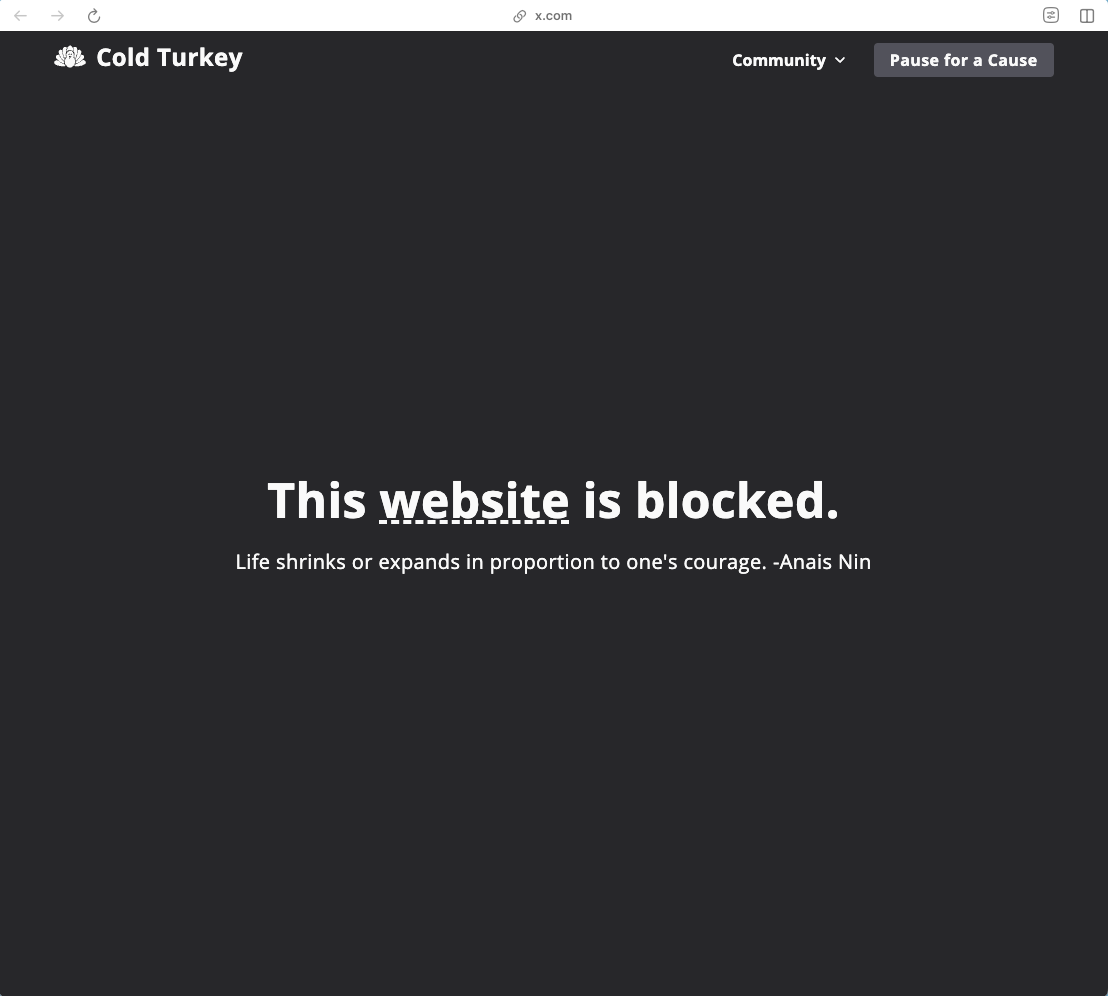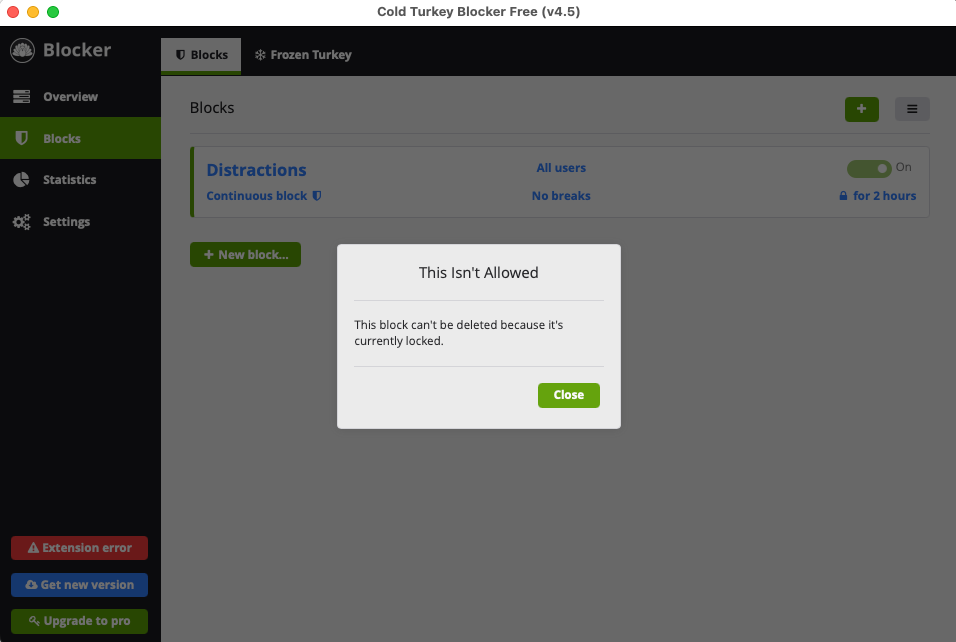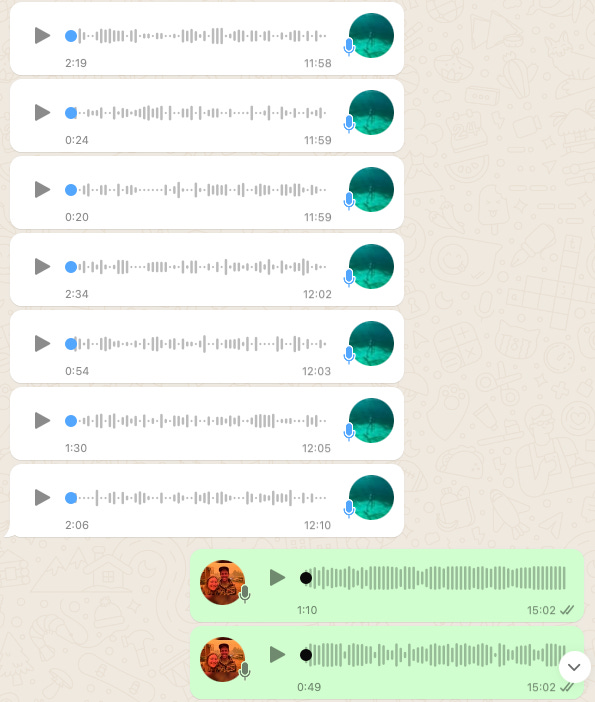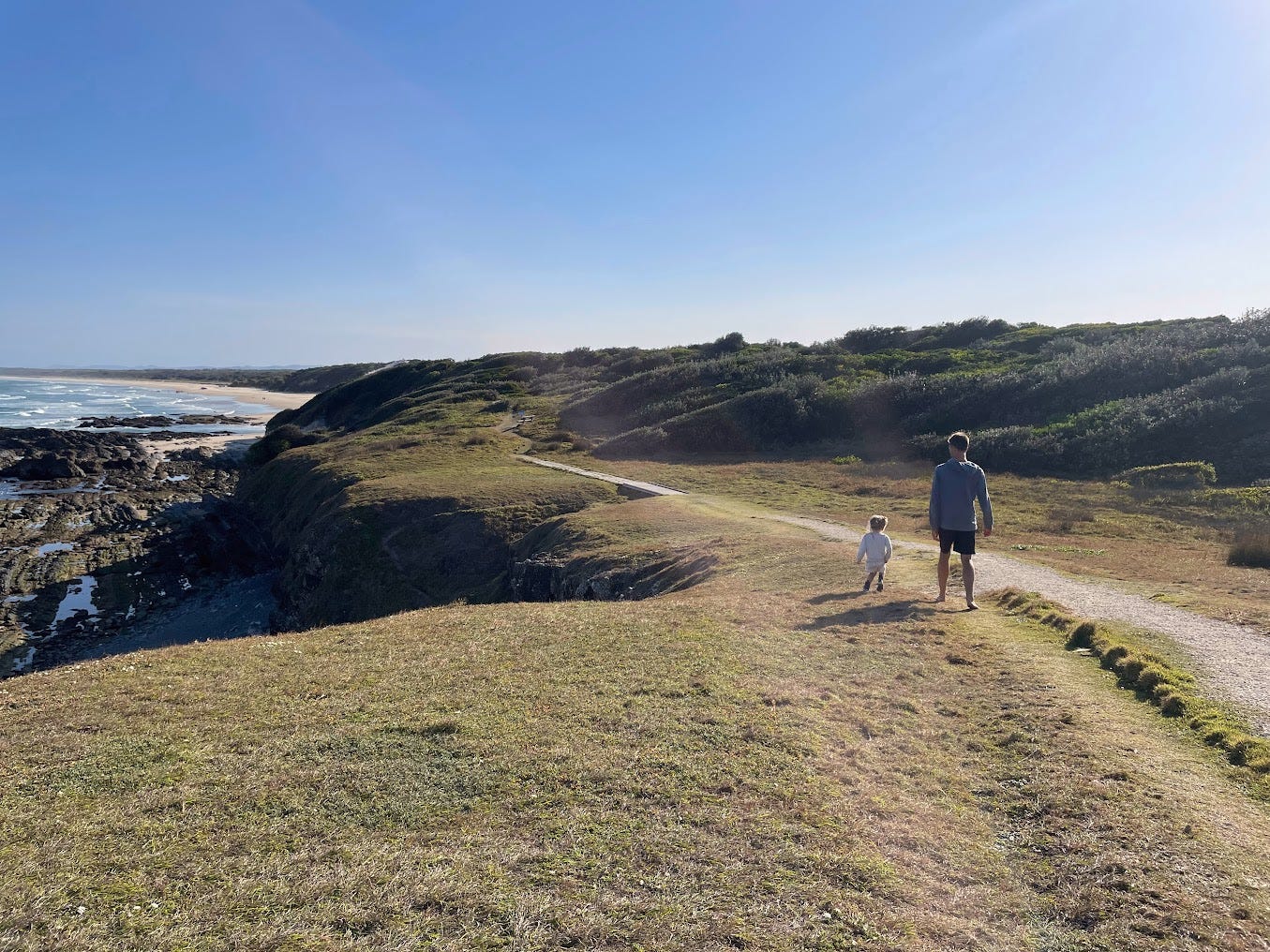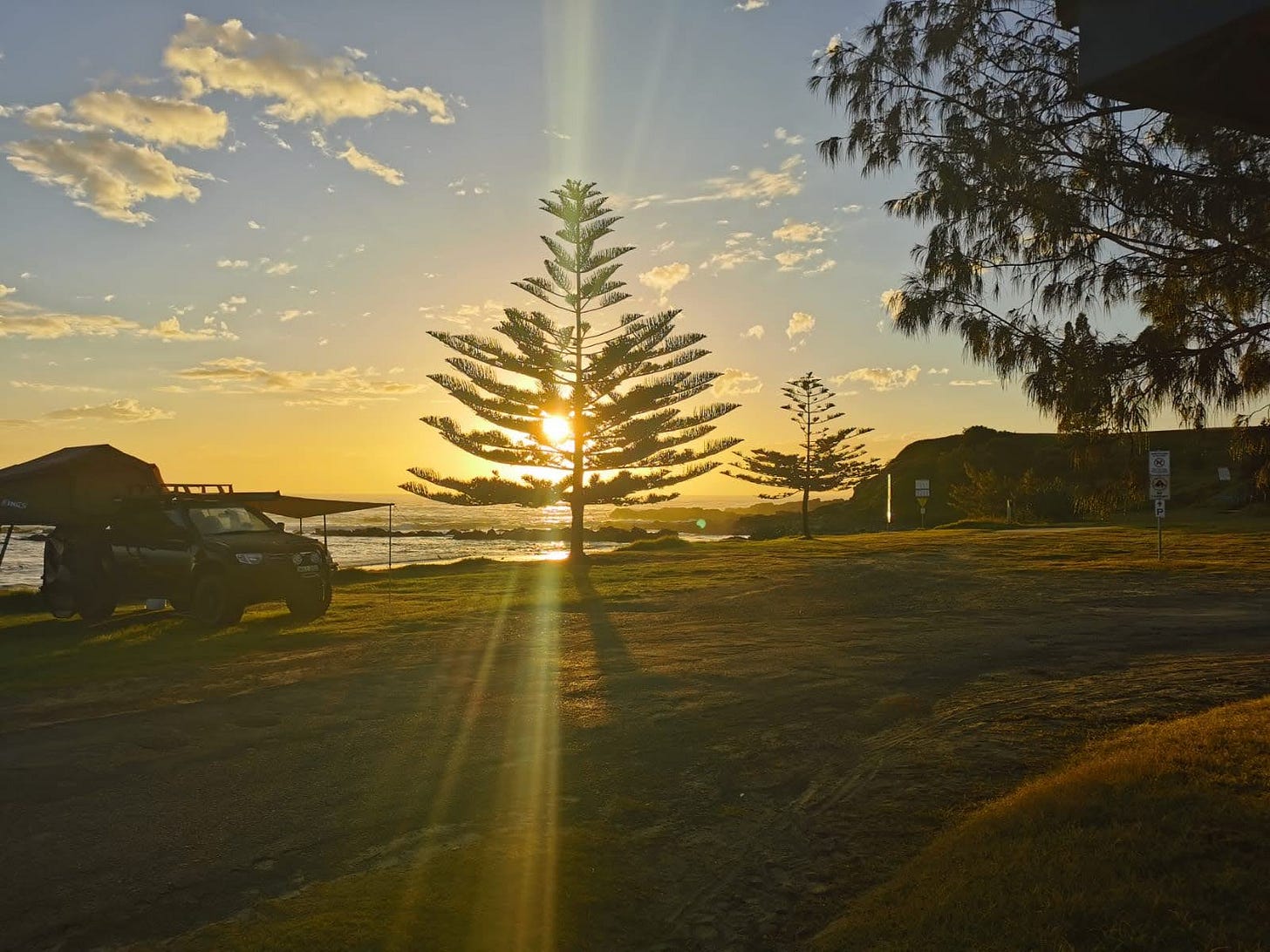I know how distracted I can be, but also how to deal with it.
When I am mentally strong, usually before an event occurs, I need to prepare myself for a moment of weakness.
You all know what I'm talking about. If you have snacks in the pantry and you're wasting away on the couch, you will likely eat them. If you're like me, you will eat them all.
The trick that works for me? DON'T BUY SNACKS.
Brutal as it sounds, we have nothing but nuts, yogurt and sometimes some 99% cocoa chocolate at home.
Applying this concept to my work life, I know that if I have Twitter, YouTube, Reddit, etc. available, I will use them in a moment of distraction, wasting time doomscrolling.
There is a time for staying up to date on things, but it's not while trying to focus!
The trick? Before I go to bed, I enable Cold Turkey to block out my entire morning. With that, Twitter, YouTube, Reddit, etc. are completely blocked. I don't have any of these apps on my phone, and the URLs are also blocked. It takes considerable effort to install them, just like it would to buy snacks.
I simply can't quickly check Twitter when I wake up and start working.
I guess we all have these little ways to negotiate with our inner selves.
I love hearing and discovering ways to ensure I spend time on what matters. My goal is to have as much productive work as possible so I have more free time to spend with the kids, surf, or read a book.
So here are a few things I've learned and found valuable.
Speak, Don't Type
Talking to someone is much faster than writing; that's why many people these days resort to endlessly long voice messages.
It's more efficient, you can do it while walking through the house or carrying a child.
What many don’t know is that you can use the same to talk to your computer.
I either use ChatGPT's voice feature to discuss a topic directly (it's insanely good!), or I use Superwhisper locally to write a detailed prompt in Cursor when coding, or even write an article.
It's a sleek little app that turns talk into text and inserts it straight into whatever you use to write.
iPhones have a similar built-in feature, and I use it for note-taking (using the microphone icon on the keyboard).
Saves me a lot of time and doesn't make typos.
Catch Curiosity Immediately
"Curiosity is perishable" - I heard this on a recent podcast with Naval Ravikant, and it was a classic rediscovering the known moment. It was something I had heard about but never really internalised.
Have you ever had a moment of excitement about a topic that you would love to explore right now, but then stopped because you were busy with something else?
You might have briefly written down the thought to explore it later.
Later, you revisit the note, but the excitement is gone, and you never pursue it.
There is something magical about following that curiosity as it appears. It's not always possible, but diving in while you're excited can be great.
If you do, you don't have to push to work on it; it doesn’t feel like work at all, you get into a flow easily.
I generally have Apple Reminders and Obsidian (my note-taking tool) open, to write down things in detail as quickly as possible when they arise.
When it comes to note-taking, speed is key. I don't want to think about where to write it down or review the correct header, as I might lose the thought. Therefore, I always have a blank page with Daily Thoughts open to write something down quickly.
Give Your Mind Quiet Space
Another overlooked aspect is allowing the brain to work.
On a stressful, tight-deadline project, I often find myself grinding away without pause, never giving my brain time to reflect. I keep chipping away at these little tasks, losing sight of the big picture.
I get lost in the weeds.
Sometimes, all it takes is sitting down in the morning to jot down my thoughts or going for a walk. The trick seems to be stepping away from the active problem-solving.
A mistake I often make is taking my phone when I go for a walk. While walking, I look things up or listen to a podcast, which bombards my brain with new content.
Some real downtime is the key. New ideas appear automatically, and problems get solved.
How often have you heard someone having a brilliant idea in the shower?
In the shower, there's nothing else to focus on. You're left with your thoughts, allowing your brain to think freely and develop those great ideas. The time dedicated to letting your brain breathe is underestimated.
Prioritise Your Peak Hours
You just had a big lunch and got back to the desk to read some research reports. If you're like most, that won't be a pleasant experience. You're going to be fatigued, and even caffeine won't help you out. You'll have to force your way through them.
If you read the same research reports first thing in the morning, that would have likely been less of a fight.
There are moments where you need to be an operator, and other moments where you need to grind and others where you have high focus or creativity.
Our brains are able to accommodate all of these functions throughout the day, but it will be much harder if you time it wrong.
I'm a morning person, so when I get up at five and have some coffee, I'll have intense focus and the ability to do some deep work for a couple of hours (if the kids let me).
However, in the evening or after lunch, I'm terrible at this stuff and need to do something more active, such as categorising expenses, paying invoices, answering emails, or fixing a few bugs.
We can't always control when we do what, but it can be useful to be aware of when throughout the day you are best suited for which task.
When I first learned about this, I did this exercise: I tracked my energy level and focus at every waking hour of the day. Do that with a simple scoring mechanism in a spreadsheet for a few days, and you'll get some good, rough insights into when you can do what.
Managing Expectations
When I listen to Andrew Huberman or Tim Ferriss and hear their sleep, exercise, and work protocols, I can't help but realise that these folks probably don't have kids or live under very different circumstances.
I hardly ever get a full night of sleep, and deep work sessions for more than an hour are tough too, when working from home.
That leads to me not viewing the morning sun outside and having a coffee first thing in the morning, instead of waiting for 90 minutes as Huberman recommends. I also don't track my sleep or calories, and probably don't do enough strength training.
Putting their advice into the right frame is important here. Learning from them is great, but one needs to manage expectations on what can and can't be done.
If your boss or customer sends you an urgent email in the morning, you likely won't wait until the afternoon.
As always, it's all about finding out what works for you.




